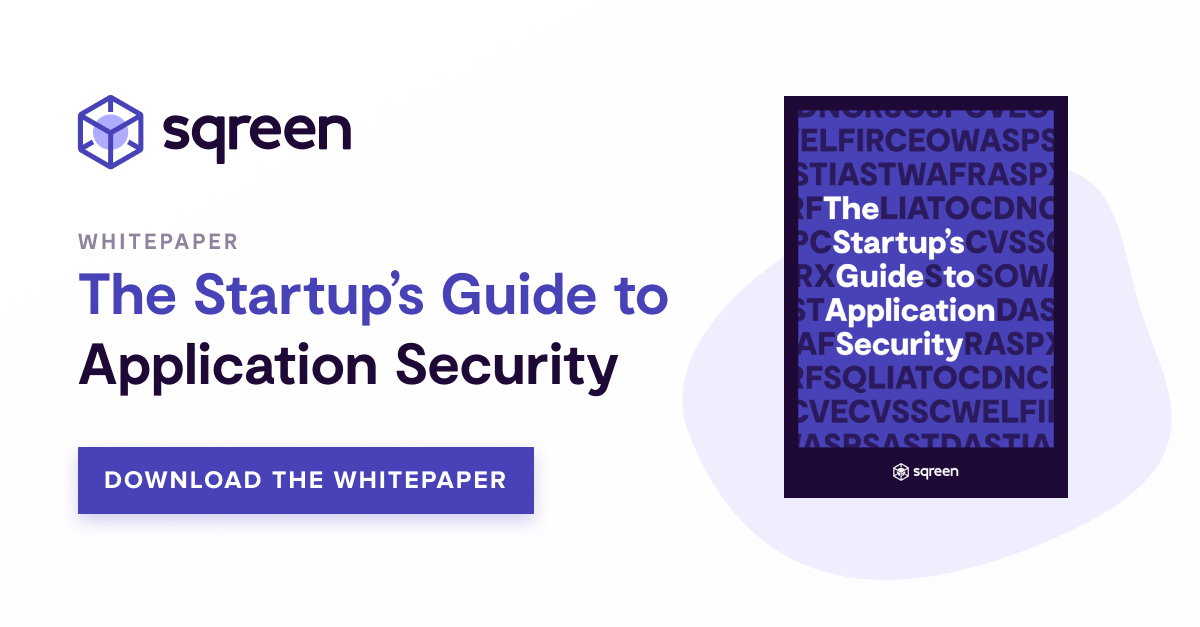#271 — June 17, 2020 |

|
|
AWS CodeArtifact: A Managed Software Artifact Repository Service — Another week, another new Amazon Web Service :-) This time we get pay-as-you-go (S3 style: requests, egress, and storage) ‘artifact’ and package management that works with common systems like Maven, Gradle, npm, yawn, pip, and twine. Amazon Web Services |
|
How The Most Popular Chrome Extensions Impact Browser Performance — Anything you add to a browser is going to have performance repercussions in terms of memory consumption, any JavaScript to be run, effects on page rendering, etc. These results demonstrate the costs pretty well but there’s one nice exception: the effect of ad blockers on ‘noisy’ pages! DebugBear |

The Startup’s Guide to AppSec — In this whitepaper, learn more about how to approach and prioritize application security in the different phases of your company’s growth and learn about app sec use cases and how to solve them. Sqreen sponsor |
|
JetBrains' 'State of the Developer Ecosystem' 2020 — The results of the fourth annual JetBrains survey come from the insights of around 20,000 developers and the languages, tools, and technologies they use. JavaScript is the most popular language, Python the most studied, but Go is the one folks are most keen to adopt. JetBrains |
|
Convergent Evolution, CDNs and the Cloud — An insightful piece about the contrasts between CDNs and other forms of infrastructure and how all types of provider are offering each other’s types of service, such as AWS offering CDN services or Cloudflare offering a serverless platform. Stephen O'Grady |
|
Apple Threatens to Move Basecamp's New Email App to Trash — Scrutiny of Apple’s App Store policies has heated up a week prior to its annual WWDC developer conference, particularly after the creator of Ruby on Rails, David Heinemeier Hansson, shared some recent communications involving Basecamp’s new Hey email client. Lauren Goode (WIRED) |
|
You Can Now Mount a Shared File System in AWS Lambda Functions — This is one of those things that’s a huge deal if you do serverless, and perhaps harder to understand if you don’t, but you can now mount Amazon Elastic File System (EFS) file systems in AWS Lambda functions which opens up a lot of new use cases. Amazon Web Services |
|
💻 Jobs |
|
Find a Job Through Vettery — Vettery specializes in tech roles and is completely free for job seekers. Create a profile to get started. Vettery |
|
DevOps Engineer at X-Team (Remote) — Join X-Team and work on projects for companies like Riot Games, FOX, Coinbase, and more. Work from anywhere. X-Team |
ℹ️ Interested in running a job listing in StatusCode Weekly? There's more info here.
📕 Tutorials and Guides |
|
How to Run an Online Dev Conference / Event — An experienced developer event organizer took their All Day Hey event online at a rapid pace this year due to the pandemic. This extensive writeup covers how all the main pieces came together. Josh Nesbitt |
|
An Accessible Intro to Cloudflare Workers — If you’ve ever wondered why you might use Cloudflare’s Workers platform (a FaaS platform built on V8) rather than AWS Lambda or Azure Functions, this might give you some ideas or at least tempt you to have a play. Kay Plößer |
|
Go from Zero to Grafana Hero 🌟 (5+ Tutorials) — Learn how to use interactive maps and gauges, alerts, variables & templates to customize Grafana for any project. Timescale sponsor |
|
A Tiny, Static, Full-Text Search Engine using Rust and WebAssembly — Technically this could be in the Code and Tools area but it goes into enough depth on how to build a client-side search engine with Rust and WASM that I kinda want to have a go myself now.. GitHub repo. Matthias Endler |
|
Building a Successful DevOps Team: The Main Roles and Responsibilities John Demian (Sematext) |
|
How x86_64 Addresses Memory — Just the right balance of technical spelunking and attitude here, which is well deserved given this is a surprisingly complex matter. William Woodruff |
|
Create Diagrams with Code using Graphviz — If you’re ever had to draw a diagram and found it a tedious chore, maybe next time you could code it? Graphviz makes it possible. Adrian Ancona |
|
Best Practices for Managing and Storing Secrets — Even the most vigilant team needs to take care when dealing with tokens, credentials, and other project related secrets. This post covers some of the most common best practices. Mackenzie Jackson |
|
Best Practices for Root Cause Analysis Lightstep sponsor |
|
Setting Up VS Code Development Using Docker Containers on a Remote Host Lei Mao |
💡 Ideas, Stories and Opinions |

|
|
Port 19: Good Intentions on the Old-Timey Internet — Ah, there’s nothing like an early Internet story. This one is pretty straightforward but comes with nice Python reproductions of a ‘character generation’ protocol Jon Postel developed that ran on port 19.. but which ultimately fell out of favor due to how it could be used to cause floods of data. John Pignata |
|
Vidar |
|
Trying Python-Based Ansible Alternatives for Managing Infrastructure in Code — Pyinfra certainly looks like a compelling option for many use cases. Bystroushaak |
|
Finding Secrets by Decompiling Python Bytecode in Public Repos — When Python code imports other Python files, Jesse Li |
|
▶ Tim Tries: Azure Static Web Apps — It’s pretty basic, but if you want to see how Azure’s new static webapp deployment service works without trying it for yourself, this 13 minute screencast is as good as any. Tim Benniks |
|
The Rise of Embarrassingly Parallel Serverless Compute — A thought-piece on how distributed serverless compute can change the game on what’s possible (an example is to imagine an hour long task split into 3600 1 second long lambdas running simultaneously) although there are clearly speed bumps and challenges along the way. David Wells |
|
Using SQLite as an Application File Format? — It’s not necessarily a bad idea and presents a good alternative to a custom file format in many scenarios. SQLite Team |
|
PHP Goes Serverless: Introducing the New Serverless LAMP Stack — The first in a new series of posts aimed specifically at PHP developers about how PHP can be used in the serverless context, not something we tend to see a lot about but AWS Lambda is certainly up to the task. Benjamin Smith (AWS) |
🛠 Code and Tools |

|
|
PostHog: Developer-Friendly, Open Source Product Analytics Where You Control the Data — Collect every event on your website or app and turn all that data first into information and then, through a robust visualization suite, turn that information into insight. All that and you get to host the data yourself instead of sending it offsite which can run afoul of GPDR and other privacy initiatives. PostHog |
|
FFmpeg 4.3 Released: The Swiss Army Knife of Media Manipulation — And by media, we mean audio and video, not the press ;-) FFmpeg is a must-have for programatically manipulating video in particular. FFmpeg Team |
|
A Jupyter Kernel for SQLite — Jupyter is a set of data visualization and interactive coding tools most commonly associated with the Python world (but it works with many languages). It now has a fully functional interface with SQLite which opens up a lot of new datavis opportunities. Mariana Meireles |
|
detect-secrets: A Way to Detect and Prevent Secrets in Code — Claims to be aimed at ‘enterprise’ use, it’s written in Python and works by way of setting up a baseline and then checking things on a pre-commit hook (or you can set it up server-side if you wish). Yelp |
|
XgeneCloud: Instant REST and GraphQL APIs on any Database — Where ‘any’ is one of MySQL, Postgres, MsSQL, SQLite, or MariaDB :-) There’s quite a lot of pieces to this and they seem to be forming a company around the tech, but it’s open source nonetheless. xgenecloud |